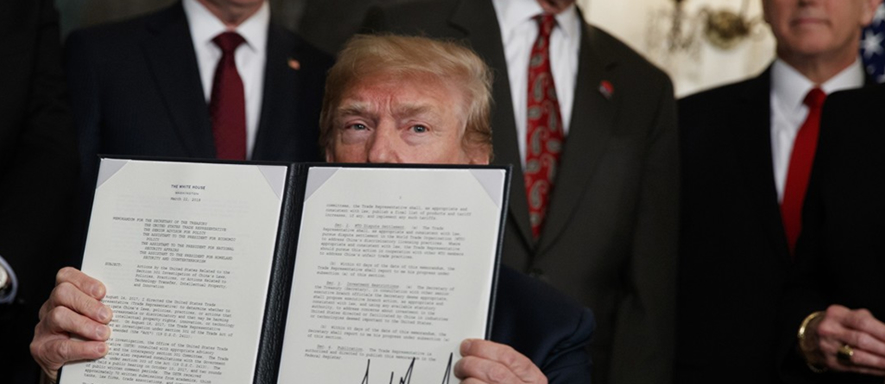The US government has upped its offensive against China with the announcement that it is set to slap tariffs worth up to $60bn on Chinese imports. US president Donald Trump signed an executive memorandum which confirmed the measures that will place tariffs on products predominantly in the technology sector.
China has been accused by US officials of intellectual property (IP) theft and unfair competition practices. The executive memorandum was drafted following the conclusion of an investigation initiated by the Trump administration in August 2017 which found that China’s laws were causing significant harm to US IP rights, innovation and technological development.
In a comprehensive statement, the US government disclosed that it was taking action against China on four major issues. The first issue was the policy in which China uses foreign ownership restrictions, which requires or pressures technology transfers from US companies to Chinese entities.
The second issue was that China imposes restrictions on US firms’ investments in the country which includes a restriction on technology licensing terms. This effectively means that US companies are forced to license technologies that unfairly favour Chinese recipients.
In addition to this, the US government claimed that China obtains cutting-edge technologies and IP in areas deemed important for its government’s industrial plans and also alleged that China orchestrates and supports unauthorised intrusions into and theft from the computer networks of US firms.
It has been reported that there are plans in the pipeline to release a proposed list of products that are set to be subject to the tariff increase within 15 days. US network CNBC has claimed the report could cover 1,300 product lines. In comments made upon signing the order, Trump said he was negotiating “reciprocal” trade terms for American companies operating in China.
This is the latest in a series of offensives taken by the US against China. It has become increasingly wary of national security in recent months, particularly with regards to telecoms and technology. Earlier this month, President Trump intervened and subsequently blocked the hostile takeover bid from Broadcom on US chipmaker Qualcomm.
Huawei has also been the subject of stinging allegations from the US government which led to the breakdown of a previously agreed partnership with AT&T to distribute its new flagship smartphone. US government officials have also called for a reduction on the use of telecoms equipment manufactured by Huawei and ZTE in the country. Legislation by Republican politicians was tabled before the US House of Representatives.





